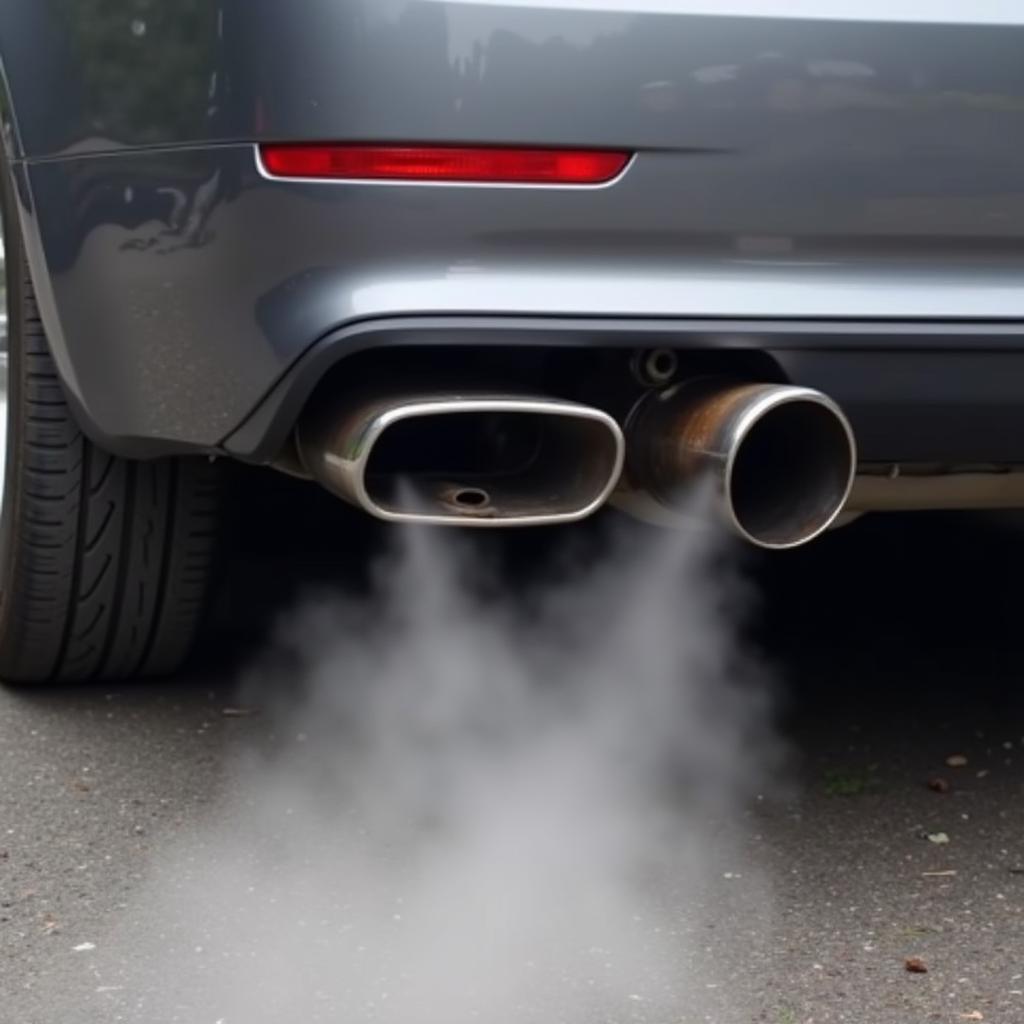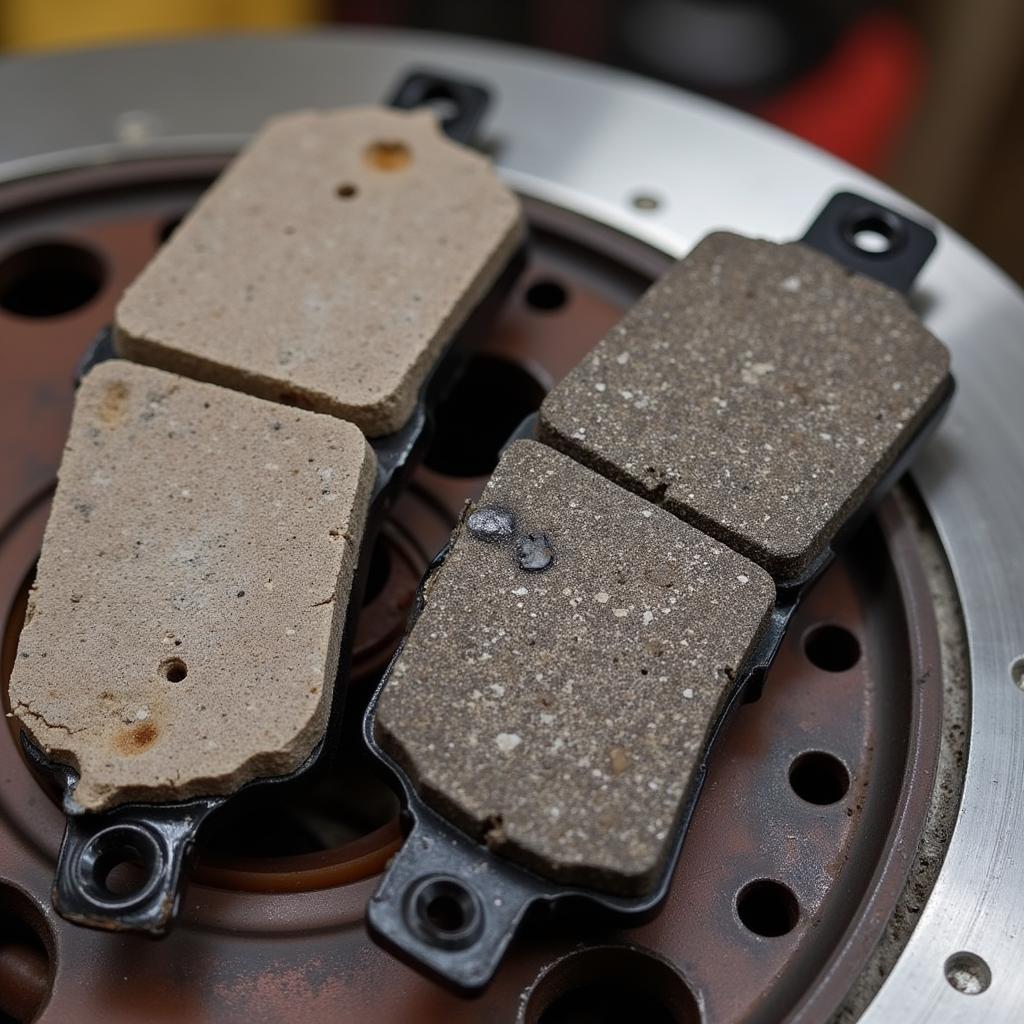A loud car can be a real headache. Whether it’s a persistent squeal, a rhythmic thump, or a low growl, a noisy car often signals underlying mechanical issues that need your immediate attention. This guide will help you diagnose and fix your Loud Car Problem, from the simple to the complex.
 Loud Car Exhaust Problem
Loud Car Exhaust Problem
Common Causes of Loud Car Problems
Several components can contribute to excessive car noise. Identifying the source of the noise is the first step towards a solution. Some common culprits include exhaust system issues, brake problems, worn-out tires, and problems with the engine itself. Let’s delve deeper into these potential problems.
Exhaust System Issues
The exhaust system is a common source of loud car noises. A hole in the muffler, a rusted exhaust pipe, or a damaged catalytic converter can all create excessive noise. These issues not only disrupt the peace but can also affect engine performance and emissions. symptoms of car exhaust problem.
Brake Problems
Squealing or grinding brakes can indicate worn brake pads, warped rotors, or other brake system malfunctions. Ignoring these sounds can lead to more significant and costly repairs down the line.
 Worn Brake Pads Causing Noise
Worn Brake Pads Causing Noise
Tire Issues
Tires are another frequent source of noise. Uneven wear, low tire pressure, or the wrong type of tires for your vehicle can cause humming, thumping, or roaring sounds, especially at higher speeds.
Engine Problems
A knocking or ticking sound coming from the engine could signal a serious internal problem, such as worn bearings or damaged pistons. These issues require immediate professional attention to prevent further engine damage. top 10 car engine problems.
Diagnosing Your Loud Car Problem
How do you pinpoint the source of the noise? Paying attention to the type of noise, when it occurs, and under what conditions can help you narrow down the possibilities.
What type of noise is it?
- Squealing: Often indicates brake problems.
- Grinding: Also suggests brake issues, possibly more severe.
- Rumbling: Could be related to the exhaust system or tires.
- Knocking: Usually signifies engine problems.
- Thumping: May indicate tire problems or suspension issues.
When does the noise occur?
- While braking: Points towards brake problems.
- While accelerating: Could be related to the engine or exhaust.
- At certain speeds: Suggests tire or wheel bearing issues.
- When idling: Might be related to the engine.
 Mechanic Diagnosing Car Noise
Mechanic Diagnosing Car Noise
Solving Your Loud Car Problem
Once you’ve identified the likely source of the noise, you can take steps to fix the problem. Some issues, like replacing worn brake pads, can be relatively simple DIY fixes. Others, such as engine repairs, require the expertise of a qualified mechanic. infiniti q50 car problems.
“Regular maintenance is key to preventing loud car problems,” says John Miller, a certified automotive technician with over 20 years of experience. “A simple inspection can often catch issues early on, before they become major headaches.”
For more complex issues, don’t hesitate to seek professional help. Addressing loud car problems promptly can save you money and prevent more extensive damage down the road. smoke signals car problem.
Conclusion: Addressing Your Loud Car Problem
A loud car isn’t just annoying; it can be a sign of serious mechanical issues. By understanding the common causes of car noise and following the diagnostic tips outlined in this guide, you can address your loud car problem effectively. Remember, proactive maintenance is the best way to prevent future issues. Contact AutoTipPro at +1 (641) 206-8880 or visit our office at 500 N St Mary’s St, San Antonio, TX 78205, United States for assistance. We’re here to help you keep your car running smoothly and quietly.





Leave a Reply